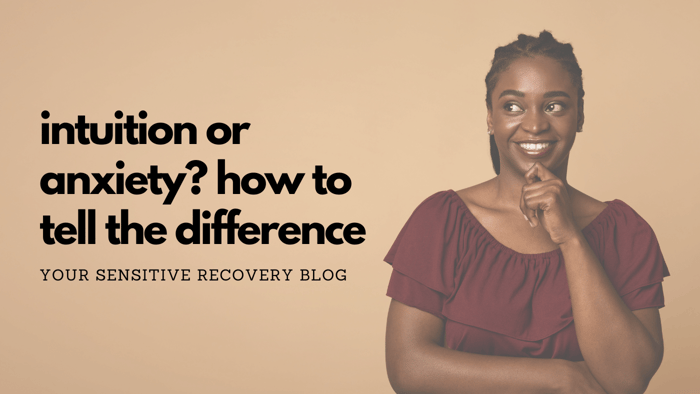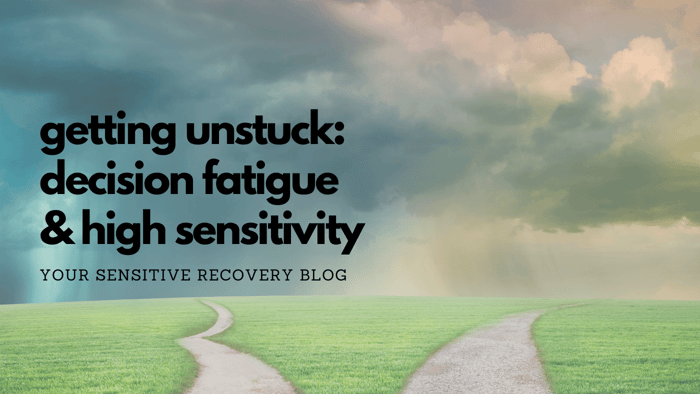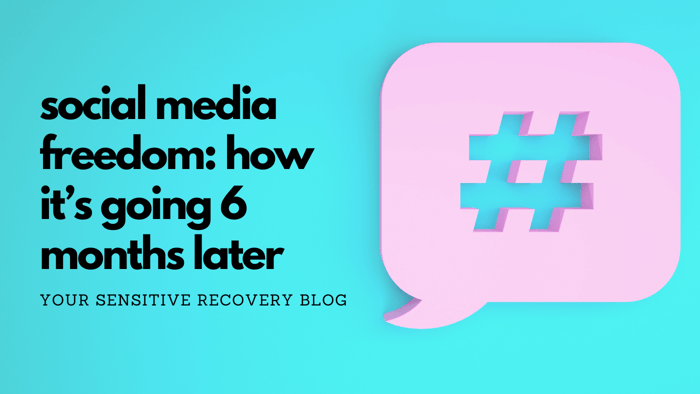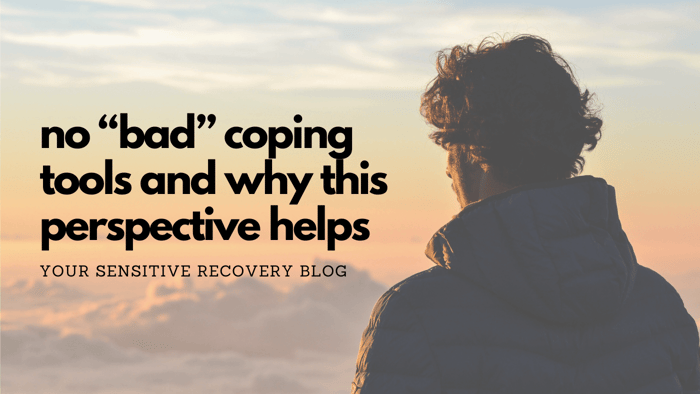As a Highly Sensitive Person (HSP), you may already know that you have a strong intuition. Perhaps you haven't called it that, but you've recognized the ways in which you pick up on subtleties, sense shifts in energies, and just seem to know things without understanding how.
But if you also struggle with anxiety, things can get...confusing. Your deep inner knowing might feel clouded or hijacked by fear. So, how do you tell whether it’s your intuition speaking or your anxiety sounding the alarm?
In this post, I'll explore how to practice separating intuition from anxiety and strengthen your connection with your inner knowing.
The Intuitive Nature of Highly Sensitive People
I was sitting in the audience at the theater recently when a calm, clear thought crossed my mind: "The power is going to go out." Sure enough, not two minutes later, the power in the building went out.
Granted, there was a thunderstorm passing through the area, so I imagine that other folks in that theater thought about the possibility of a power outage too, but for me, it was one of many frequent occurrences when my inner knowing said, "Oh yeah, I knew that was going to happen."
I used to second-guess these moments. Was I just making a lucky guess, or reading too much into things?
However, the more I learned about what it means to be a Highly Sensitive Person, the more I understood that these flashes of insight, those gut feelings or sudden knowings, are often signs of a finely-tuned intuition.Because an HSP's brain is wired to process information more deeply, we can often (and sometimes without even realizing it) arrive at insights that seem to come out of nowhere. Whether it’s sensing someone’s mood before they speak, choosing the right words at the right time, or simply knowing something that's seemingly impossible to know, it's our intuition at work.
When Anxiety Gets in the Way
Of course, intuition isn’t the only inner voice we can hear. For many HSPs, especially those with a history of trauma or chronic stress, the voice of anxiety can get loud, sometimes drowning out your inner knowing altogether.
Anxiety can seem to mimic intuition. It can nag at us in much the same way and make it hard to tell whether a sensation is a warning from our wise inner voice or a reaction from a taxed nervous system.
As a survival response, anxiety is always trying to protect us. But unlike intuition, which is grounded in presence and perception, anxiety pulls us out of the moment and into a cycle of what-ifs and catastrophizing. It feeds on fear and urgency, not clarity.
3 Steps for Separating Intuition from Anxiety
The good news is that you can learn to tell the difference between your inner knowing and your anxiety. To do this, it's important to focus on the qualities of the message, not just the content.
1. Check the Tone
Intuition often speaks in a quiet, grounded tone. It might be firm, but it is rarely urgent, except in life-threatening situations. It's a sense of knowing that doesn’t demand immediate action. Anxiety, on the other hand, often feels loud and intrusive. It’s quick, urgent, and tends to spiral into worst-case scenarios.
2. Notice the Physical Sensations
Intuition typically comes with gentle clarity, even when the message is uncomfortable. It could be a soft nudge in your chest or a settling in your gut (a.k.a. "a gut feeling"). Anxiety is packaged with physical tension: tight shoulders, shallow breathing, or a clenched jaw. If your body feels like it’s bracing for impact, that’s a clue you're likely in an anxious state.
3. Look for Patterns
Intuition often speaks in situational statements, which can be quite specific. It gives clear direction: “Don’t go that way” or “Reach out to this person.” Anxiety tends to be repetitive and more generalized, like “I'm going to fail" or "Something bad is going to happen.” Anxiety also may speak in questions, using "what ifs" and "shoulds."
Strengthening Your Inner Knowing
One of the most powerful tools you have is the pause. Take your time. Slowing down, even for 30 seconds, can give you the space to tune in more clearly. Intuition waits for your attention; it doesn't compete, so you can invite it forward by creating small moments of stillness in your day.
Writing down your gut feelings or inner nudges (even if they don’t make sense at the time) is another powerful way to strengthen your ability to hear your self-guidance. You’ll begin to see patterns. Maybe you sensed a boundary was needed in a certain relationship and later realized you were right. These reflections strengthen your confidence in your inner knowing.
Part of why anxiety becomes so loud is because it brings the perpetually unfulfilled promise of certainty. Intuition doesn’t guarantee outcomes; it just points toward alignment. The more you’re able to sit with uncertainty, the easier it is to hear what’s true for you, beyond the noise.
High Sensitivity is easily dismissed and looked down upon in our culture. But the truth is, it's a gift. You don’t need to “toughen up” or push through your sensitivity. When you can fully accept your trait, it can truly be your compass.
The world may have taught you to override or dismiss it, but the voice of your inner knowing has always been there, quietly guiding you back to yourself.Be patient. You may not always get it right. You may still confuse anxiety with intuition from time to time, and that’s okay. What matters most is that you keep listening and keep honoring the part of you that knows.
And you will know.
✨ Josie Munroe, LMFT is a licensed therapist and owner of JosieMunroe.com and Your Sensitive Recovery. As a recovered clinician and Highly Sensitive Person, she loves supporting others on their journeys to form new, empowered relationships with food, their bodies, and their sensitivity. Join the newsletter for a weekly boost of hope and inspiration. You deserve a recovery that works for you! ✨





